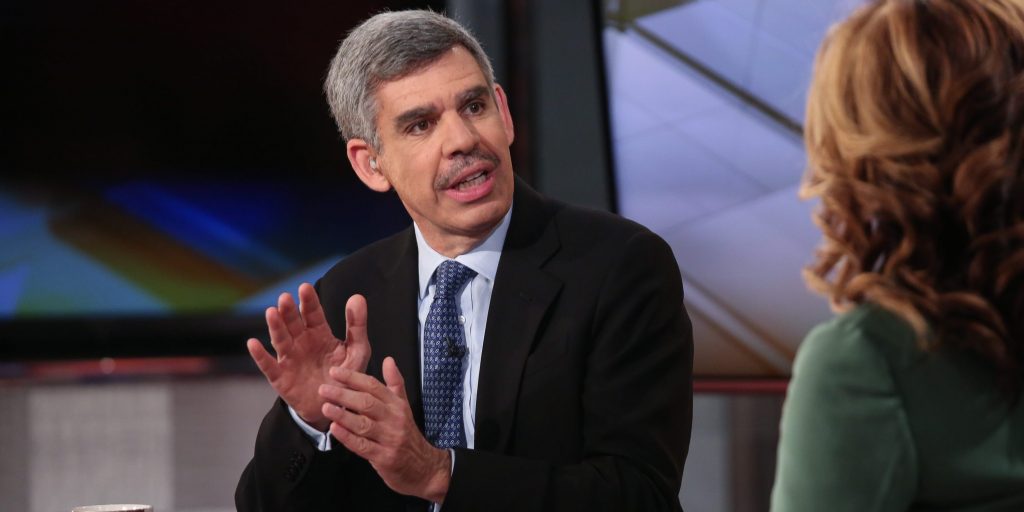- Mohamed El-Erian said the Fed must commit to servicing the real economy, rather than just the markets.
- The twin threats of market entitlement to loose policy and high inflation are factors that must drive this change, he wrote in an FT op-ed.
- El-Erian warned the alternative of not doing so would cause far bigger problems.
Mohamed El-Erian highlighted two key reasons why the Federal Reserve must redirect its monetary policy toward the real economy, rather than playing to the tune of financial markets.
The first reason is investors feel entitled to continually loose financial policy and near-zero interest rates, which is good for equities. The second reason is persistently high inflation has become difficult to contain, the top economist said in a Financial Times op-ed Monday.
"Central banks have little choice but to relegate market considerations in the face of accelerating price increases that severely undermine standards of living, erode the future growth outlook and hit hardest the most vulnerable segments of society," the Allianz adviser wrote.
Because the Fed has been late in recognizing price instability, shifting gear and managing orderly disinflation at the same time might prove troublesome, according to El-Erian. He thinks the US central bank should have pivoted a year ago.
"Like a child successfully throwing tantrums to get more sweets, markets came to expect looser financial conditions whenever there was a strong whiff of instability," he said. "This expectation evolved into insistence."
Fed officials raised rates by a quarter-point in March, taking its biggest step yet to cool inflation and bringing an end to the near-zero rates of the pandemic era. Now markets are pricing in expectations for a 50-basis point hike from May. This scenario is likely to be an even bigger policy mistake than misjudging inflation, El-Erian said, as the Fed risks pushing the economy into a recession.
But if the Fed fails to confirm what the market has now priced in, this would not only damage its credibility even further — it would make inflation last even longer, he said.
"This would undermine inflation expectations, causing the inflation problem to persist well into 2023, if not beyond," he said.
A third, even worse, scenario is if the Fed flip-flops between tightening and loosening policy over the next two years. Doing that would "prolong stagflationary tendencies, weaken its institutional standing and fail decisively to return monetary policy to the service of the real economy," El-Erian said.
"And for those in the markets that would deem this a victory, it would probably prove a fleeting one at best," he said.
The economist has repeatedly warned the Fed's ultra-loose money conditions are a policy mistake that could lead to a recession.
"The time has come to return monetary policy to the service of the real economy," El-Erian wrote. "It is a far from automatic and smooth process at this late stage. Yet the alternative of not doing so would be a lot more problematic."
